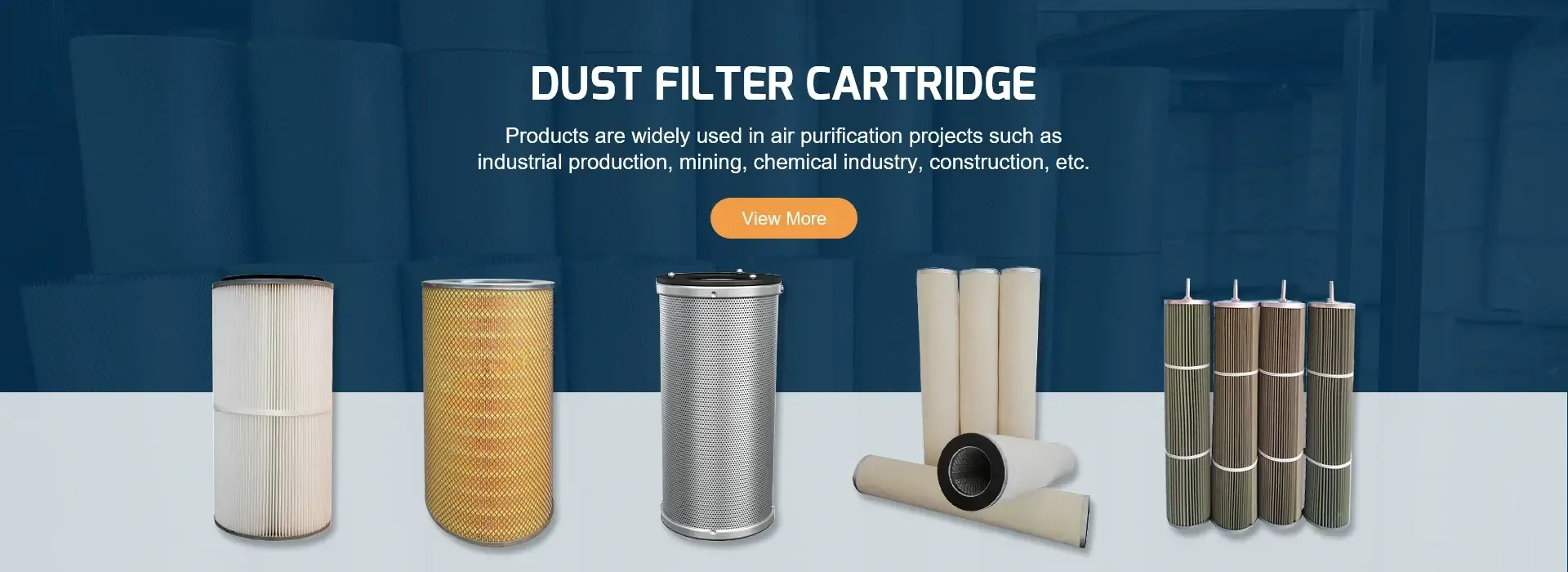 Tel:
+8615930870079
Tel:
+8615930870079
Nov . 19, 2024 08:12 Back to list
industrial dust collector cartridge filters
The Importance of Industrial Dust Collector Cartridge Filters
In industries where dust and particulate matter are a daily concern, maintaining a clean and safe working environment is crucial. Industrial dust collector cartridge filters play a vital role in this process, ensuring effective air filtration and dust management. As manufacturing and processing operations generate significant amounts of airborne particles, utilizing advanced filtration systems has never been more important. This article explores the significance, benefits, and operational aspects of cartridge filters in industrial dust collection systems.
What Are Cartridge Filters?
Cartridge filters are cylindrical filters designed to capture dust and particulates in industrial air filtration systems. Typically made from materials such as fiberglass, polyester, or cellulose, these filters are engineered for high efficiency and long service life. They are housed within a dust collector, where air containing dust is drawn through the filter media, trapping contaminants and allowing clean air to be released back into the environment.
How Do Dust Collector Cartridge Filters Work?
The functioning of cartridge filters relies on several mechanisms, including mechanical filtration, electrostatic attraction, and inertial separation. Air carrying dust particles is drawn into the dust collector through an intake source. As the air flows through the cartridge filter, the dust is trapped in the filter media. Over time, the collected dust forms a dust cake on the external surface of the filter, which can enhance filtration efficiency while requiring regular maintenance, such as pulse cleaning or replacement.
Benefits of Using Cartridge Filters
1. High Efficiency Cartridge filters are known for their high dust-holding capacity and efficiency. They can capture particles as small as 0.3 microns, making them ideal for industries that require stringent air quality standards, such as pharmaceuticals, food processing, and electronics manufacturing.
2. Space Efficiency The compact design of cartridge filters allows for more efficient use of space in dust collection systems. Compared to traditional baghouse filters, cartridge filters require less space and can be installed in tight or limited areas.
3. Reduced Maintenance Costs With advanced filter media technologies, modern cartridge filters can have longer service lives than conventional filters. This reduces the frequency of replacements and the associated maintenance costs, making them a cost-effective choice for many industries.
4. Improved Worker Safety By effectively removing harmful airborne particles from the workplace, cartridge filters help to improve indoor air quality, promoting a healthier environment for workers. This can lead to lower rates of occupational illnesses and reduced absenteeism.
industrial dust collector cartridge filters

5. Versatility Cartridge filters can be used in various applications, from wood processing and metalworking to food production and chemical manufacturing. Their adaptability makes them a preferred solution for many different industrial environments.
Choosing the Right Cartridge Filter
When selecting a cartridge filter for an industrial dust collection system, several factors must be considered
- Particle Size Different filters are designed to capture specific particle sizes based on the industry’s needs. Understanding the types of particulates generated in a specific process is essential.
- Airflow Requirements The filter should be compatible with the airflow capacity of the dust collector to ensure optimal performance and efficiency.
- Filter Media The choice of filter media affects filtration efficiency, dust release characteristics, and overall durability. Industrial operators should assess the operating conditions and select the most suitable material.
- Pleating Design Filter pleating increases the surface area for dust collection, enhancing the filter's efficiency. Proper pleating design aids in keeping the filter clean and reduces pressure drop across the filter media.
- Cost Efficiency While initial costs are important, operators should consider the total lifecycle cost of the filters, including maintenance, efficiency, and potential downtime.
Conclusion
Industrial dust collector cartridge filters are integral to maintaining clean and safe environments in various industries. Their high efficiency, space-saving design, and ability to protect worker health make them essential components in minimizing airborne contaminants. As industries continue to prioritize sustainability and worker safety, investing in advanced dust collection systems that utilize cartridge filters is a forward-thinking strategy. The right choice of cartridge filter can significantly impact air quality, operational costs, and compliance with environmental regulations, ultimately enhancing productivity and safety in the workplace.
-
Types and Applications of Air Filtration CartridgesNewsJul.28,2025
-
The Role of Gas Turbine FiltersNewsJul.28,2025
-
Mastering Air Filter Cartridge UseNewsJul.28,2025
-
Advanced Turbine Filters for Modern Gas TurbinesNewsJul.28,2025
-
Cellulose Air Filter Cartridge Advantages in Dust FiltrationNewsJul.28,2025
-
Cellulose Filters for Air Particle ReductionNewsJul.28,2025

 Email:
Email:





